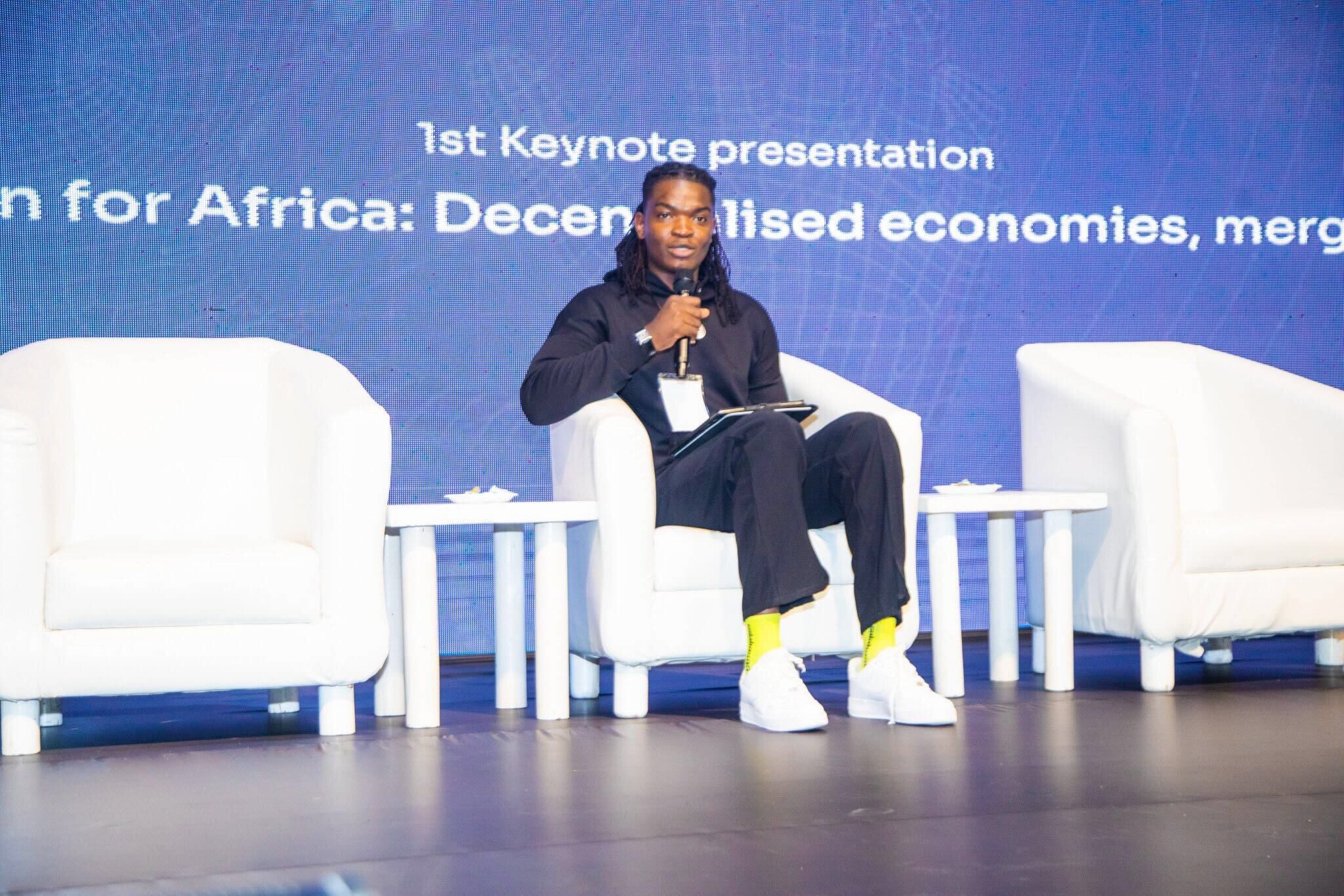About a year ago, Julie Ako, now co-founder and CEO of Albantsho graduated from the Multichoice Talent Factory, emerging as the winner of the Nihilent award. she has also won the Afriff award for the short film she wrote as, the best student, Bride Untangled.
But her journey to the upper echelons of the Nigerian Nollywood film didn’t start from there. she had spent the past two years building Albantsho a marketplace of some sort for Nollywood creatives.
“Although I studied computer science at the University of Benin,” she said in a new interview with tech next. “When I left school I decided I wanted to go into screenwriting and filmmaking fully because it’s something I passionately had a flair for and I had always written screenplays even while I was an undergraduate, which made it easy for me to transition into film making”
– Julie Ako
On this week’s women in tech, Julie speaks to us about her journey to building a media-tech startup, that provides solutions for both screenwriters and producers in the filmmaking industry.
Ako, who is also a screenwriter herself never imagined she would ever go into “tech” but spotting a need in the film industry spurred her to come up with a solution that would make the film making the process more seamless for all players involved from screenwriter to producer, from sourcing a script to final production.
The solution is Albantsho.
The journey to Albantsho
An opportunity to be a part of the multichoice talent factory helped her gain more exposure and with it came the realization of how much collaboration was needed to complete a project in the film industry.


“ I applied for the multi-choice talent factory and got in on a year-long residency. During that time, I was exposed to all aspects of filmmaking beyond what I knew and realized that the film industry is such a collaborative industry and needs a lot of competent hands to make a single project successful. I realized if one aspect is not working right, it affects the outcome of the whole project.”
Armed with a new level of exposure to the film world, which also brought a deeper understanding of the myriad of challenges impeding the telling of stories as they would like to be told in the industry, Ako sought to come up with a solution that would tackle some of these problems.
The Birth of Albantsho
After her stint at the Multichoice Talent Factory, she wasn’t still ready to take on the challenge of producing movies: “ I wasn’t in a position to make films as an art as I wanted to, especially since to do that, you need to have your own resources and to create a commercial entity, there is a lot to consider.” She said.
Yet, she decided to create something that could be of equal value. And, the question is what?
“So rather than just sit idle and complain the industry is not how it’s supposed to be, I thought to myself what are the challenges facing the industry? what can I do about them with my background in computer science and love for film? And create this convergence where solutions can be created.”
Ako says this was how the idea of Albantsho came about, a fusion of two words, Albasa which is Hausa for Onion and Ntsho the Setswana word for black, making Albantsho – meaning Black onion.
Shedding more light on her reason for choosing the name, Julie says:
“ I wanted to make it very African centric which is where the name came from because we want African writers to feel connected to their African roots and have access to data that improve their story, and then producers can have this platform where they are assured of quality stories. It is a multi-layered solution, just like African stories can be which is how the idea to use an onion which is also multilayered came about”.
Fully aware of the many challenges from funding, distribution, scripting, structure etc…facing the film industry, Ako decided to start with screenwriting not only because she is a screenwriter herself, but because she believes “ screenwriting is the foundation of filmmaking in the first place. So I started thinking and making research towards what we can build to move our industry further”.
That signalled the start of Albantsho in 2020. Julie and her team are looking at launching fully in Q2 of 2022.


Albantsho: a platform from a community
Albantsho started first as a community that grew into a solution, Julie said.
“Every time we meet writers a common theme is always we don’t know what to do with our script, especially for those who didn’t know anyone in the industry. The solution we seek to provide is to create a platform that would be a bridge between writers and producers, which is what we realized was the missing link. I realized that even in Hollywood, there are purely tech driven agencies and communities that help writers access resources and get their work seen”.
Julie started working with fellow multi-choice talent factory alumni, Nikita Mogware to create this platform. While Nikita is focused on the education part of the solution, Julie was focused on the technology and backend workings.
From the onset, they sought to create a hub where young African screenwriters can get involved in each other’s work and bring a sense of authenticity to the work and give genuine feedback that screenwriters may not get anywhere else.
Julie believes that
“ for African filmmakers to be an industry to be taken seriously as they ought to be, I believe that having solutions in the industry important, one of the ways is to create access to data and also help writers to feel like there is a direction for their work”.
Simply put, Albantsho seeks to create an easy and efficient way for writers and producers to transact on their story acquisition. The vision is to leverage technology to unfold the many layers of African stories left untapped.
Film making X tech, how acceptable?
Speaking on acceptability from screenwriters and other industry players, Julie reveals that the level of acceptability has been really good:
“ What we are doing is to take what we believe is workable and create a market there to encourage growth and a better structure for the industry. That is why getting others interested has been relatively easy, we have the screenwriters guild interested in what we are building because they see how what we are doing will help solve problems for writers. in areas like where the portfolios of writers can be found, what is their rate, how many awards they have won and other necessary information.”
She also spoke on how producers have also interest because they see the need.
“ Producers are seeing the need and are hoping it delivers on its promises and they have shown interest. We have a workshop coming up in which a lot of them are involved. This shows us there is a market for what we are building. In fact, we have production studios that have bided for scripts even before the official product launch”
The business model
At the core of their business model, Julie explains, is that Albantsho is an aggregator for creators, buyers and sellers. Here they have access to tools and to each other to transact.
In turn, writers pay the platform a commission fee when they sell their scripts, while the producers are allowed access based on a subscription plan.


“ We want a seamless entrance for the writers so they do to have to pay anything until they sell a script. Our business model is commission-based and subscription for premium producers who want certain access or create certain projects”, she explained.
Speaking on how the writers play for the services that will be offered on the platform, Ako reveals what the concerns are:
“ Writers have always been dealt the shorter end of deals in the industry. So, it’s important to us that they feel this is different and prioritise the writers. Also to ensure that the producers get value for their money, the quality of the script has to be a top-notch quality that producers are happy to pay for. So the writers are paying in time and resources except they want to get their work professionally revised that they would pay for.”
Challenges as a woman in tech
As much as there are numerous challenges facing women in tech, Julie says she is barely aware she is a woman in tech as she’s used to existing in male-dominated spaces.
“ I recognise that it is quite harder for women to access resources or knowledge in certain areas. I also believe that a lot has improved. I am barely aware that I am a woman in tech, I work easily in a male-dominated environment. This is evident in my background in computer science and the filmmaking industry. I have never seen it as a hindrance because I have always believed that you can go as far as possible if you want to be in space”.
Advice to women in tech
Julie has a piece of very simple advice for women looking to come into tech, filmmaking, engineering or any other sector for that matter: build capacity!
“ My advice to women regardless of the sector is that so long as that desire is in you to go into a certain field then focus on building capacity. This is because if you build capacity it will be impossible for anyone to ignore you as a woman. When you chase capacity, you break down the walls that are hindering your entrance into any specific role or any goal. So just focus on building capacity and learning as much as you can. If there are problems affecting your learning, don’t be quiet, be very vocal about it and ask questions”.
While Julie has plans for organising a screenwriter’s workshop and launching Albantsho in the nearest future, she still has other plans for the future.
Speaking about where she sees herself in the future, she said that she is excited about what the future will look like in the next five years.
“ I see a lot of growth for writers, a better structure in the filmmaking industry in Nigeria. There are a lot of positive investments into the creative economy from companies like Netflix and we are still a growing market so in the next five years. I am looking at more tech products being created within the film industry. I am looking at better stories being told, internationally and critically acclaimed stories told by us and not just being a small part of the story”.






